Recent Blog Posts
What Factors Can Aggravate a Criminal Charge in Wisconsin?

The time spent in the criminal justice system begins when a person is arrested. After an arrest, an individual will be charged with a crime if the prosecution finds that there is enough evidence to do so. Next, the alleged offender and his or her attorney may be able to reach a plea bargain with the prosecution, or the case may proceed to trial. Once everything is said and done, a judge will deliver a sentence for the crime if the defendant is convicted or pleads guilty. In Wisconsin, each crime has a different classification, which typically depends on the seriousness and nature of the offense. In some cases, the prosecution can push to have a sentence increased if there are aggravating factors present. That is why it is important to understand what circumstances can lead to harsher sentencing.
Examples of Aggravating Factors
When Are Plea Bargains Used in the Wisconsin Criminal Justice System?

Sometimes, the only thing people know about the criminal justice system is what they have seen in movies and on television. In many of those fictional cases, the offender ends up going to trial, and the defendant’s attorney fights to get him or her free. What most people do not know is that the majority of real-life criminal cases actually do not go to trial. Most of the time, the defense and the prosecution are able to work out some sort of deal for the defendant to plead guilty, who then receives a lesser punishment in exchange for the guilty plea. Similar to a settlement in a civil case, this is called a plea bargain, and it is regularly used in the criminal justice system.
What Is a Plea Bargain?
A plea bargain is an agreement that is made between the defendant’s lawyer and the prosecutor to settle a criminal case, rather than taking that case to trial. Most of the time, the plea agreement involves the defendant pleading guilty in order to receive a less severe sentence. There are three main types of plea bargains:
How Can a Criminal Defense Lawyer Help My Case in Wisconsin?

If you made a mistake and are in trouble with the law, you may be feeling overwhelmed, scared, and worried. Depending on the type of crime you have been accused of committing, you may be facing expensive fines and even years behind bars in some cases. Having an attorney by your side throughout the criminal proceedings is important and crucial to a successful outcome. The importance of obtaining legal representation is even written in our constitution. We have a constitutional right to be appointed an attorney if we cannot afford a private lawyer. So how do criminal defense attorneys actually help defendants?
Benefits of Legal Counsel
When you are accused of committing a crime, representation by an attorney is extremely important. There are certain things that a lawyer knows how to do that could protect you if you have been accused of any offense. Lawyers also have extensive knowledge of the criminal justice system, which can help secure a favorable verdict. Here are a few ways that criminal defense attorneys help protect their clients’ rights:
Can a Driver Refuse to Submit to a Chemical Test in a Wisconsin OWI?
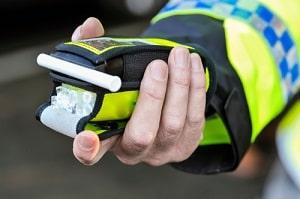
The state of Wisconsin remains the only state in the nation that does not criminalize first-time DUI offenses. Instead of it being a criminal charge, it is treated more like a traffic ticket. Drivers pay a fine, and while they do experience a six- to nine-month license suspension, they are also eligible for an occupational license immediately. Even so, law enforcement officials take operating while intoxicated (OWI) offenses rather seriously. That is why it is important to understand Wisconsin's Implied Consent law and how it affects sobriety tests in OWI traffic stops.
Administering a Chemical Test
When a police officer pulls you over under the suspicion that you may be operating your vehicle while intoxicated (OWI), he or she will likely ask you what you have been doing and if you have been drinking. If anything about your conversation makes the officer think that you may be impaired, he or she may ask you to step out of the vehicle to conduct field sobriety tests, or you may be asked to take a portable breathalyzer test that will give an estimate of your blood-alcohol content (BAC). If the results of these tests or any other observations cause the officer to believe that you are intoxicated, you may be arrested. Upon your arrest, you will be taken back to the police station, where you will be asked to submit to an official chemical test to determine your blood-alcohol content (BAC). This is where you have a choice. You have the right to refuse the test, but you will face consequences if you do break the implied consent laws.
Who Can Legally Own a Gun in Wisconsin?

For many pro-gun-ownership activists, the Second Amendment to the United States Constitution is often the go-to for debates over who should be permitted to own a firearm. According to the Second Amendment, all citizens have the right to bear arms, but the government has reserved the right to regulate ownership to the individual states. Each state and even the federal government has placed restrictions on gun ownership, specifying when an individual may be forbidden from owning or possessing firearms. Violating these laws can result in serious consequences in Wisconsin.
Wisconsin Gun Ownership Laws
In Wisconsin, there are certain people who are not permitted to purchase or possess a firearm. If you are caught in possession of a gun when you are not permitted to do so, you may face criminal charges. You could face illegal possession charges if you own or possess a firearm and you:
3 Common Defenses to a Wisconsin OWI Charge
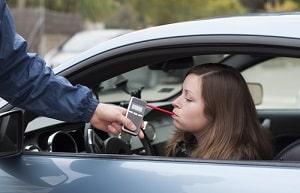
Being arrested for operating a motor vehicle while intoxicated (OWI) is a serious offense. Although Wisconsin is known for having relatively lax OWI laws, you can still face significant consequences if you are convicted. Even if you do not face jail time, you can expect to pay a good amount in fines and surcharges, and you also face a six- to nine-month driver’s license revocation. In some cases, such as those involving multiple OWIs, penalties may include jail time, which could amount to months or even years behind bars. Hiring a skilled Wisconsin OWI defense attorney is one way you can increase your chances of obtaining a favorable outcome in your OWI case. Your attorney will look at your case as a whole and be able to tell you which defense strategy is the most appropriate for your situation. Below are a few common ways in which you can defend yourself against OWI charges.
What Are the Laws Concerning Carrying a Gun in Public in Wisconsin?

Compared to many other states, Wisconsin has relatively lenient laws when it comes to firearms. While some states require all firearm owners to obtain a permit or license to legally purchase and possess firearms, Wisconsin does not. If you are legally permitted to own a firearm under federal law, you must pass a background check, and then you will be permitted to purchase a firearm. Even though Wisconsin’s gun laws may not seem as strict as other states’ laws, Wisconsin does take weapons violations seriously. Being convicted of a gun law violation could result in serious criminal penalties that could affect you for the rest of your life. If you are a firearm owner in Wisconsin, it is important that you understand the laws regarding carrying your gun in public.
Open Carry
3 Mistakes to Avoid Making After a Wisconsin OWI Arrest
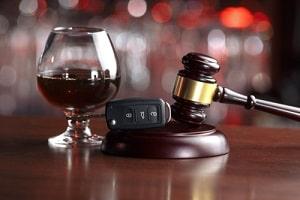
Being accused of operating a vehicle while under the influence of drugs or alcohol (known as operating while intoxicated, or OWI) can have significant consequences. Unfortunately, this is not uncommon in the state of Wisconsin. According to the Wisconsin Department of Transportation, there were nearly 30,000 OWI arrests in the state in 2015, with nearly 24,000 people receiving a conviction. Unlike most other states, Wisconsin’s penalties for a first-time OWI offense are somewhat lenient, but that does not mean the charge is not serious. What you do after your OWI arrest can affect the outcome of your case and many aspects of your life. Below are a few things you should avoid doing after you have been arrested for OWI in Wisconsin.
Ignoring Your OWI Charge
Believe it or not, some people think that ignoring an OWI charge will make it go away. While this is not true at all, it can also affect the outcome of your case. If you do not take any action in your OWI case, such as failing to show up to your court date, you could face additional charges and fines, in addition to the penalties for your OWI charge.
Can I File a Civil Lawsuit Against a Perpetrator if I Am a Victim of a Crime?
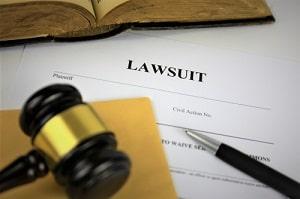
Most of the time, there is a clear-cut difference between criminal law cases and civil law cases. In some instances, however, the line between the two types of law is blurred, and a civil lawsuit could easily stem from a criminal case. There are many crimes that, when committed, can be extremely harmful and damaging to the victims. Criminal cases can help bring the perpetrator to justice, but they often do not help the victim with the medical bills, counseling, lost wages, or other damages that may have resulted from the crime. Often, a civil lawsuit is needed to provide the victims of these crimes with the compensation that they deserve for the hardships they have endured.
Filing a Personal Injury Lawsuit for Crimes
In situations where a victim suffers significant injuries, they may be able to file a personal injury lawsuit to mitigate some of the effects of the damages. Common crimes that result in damages to the victims include:
Can I Receive a Wisconsin Occupational License After an OWI Charge?
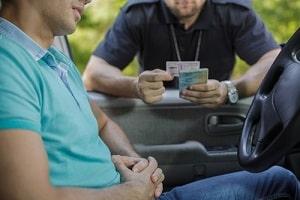
Even though Wisconsin tends to be one of the most lenient states when it comes to operating a vehicle while under the influence of alcohol or drugs, there are still serious consequences that you can face if you are convicted of these criminal charges. By far, one of the most aggravating consequences of a Wisconsin OWI charge is the fact that you can have your driver’s license suspended or revoked. If this happens, you will be unable to drive for a specified period of time -- unless you have what is called an occupational driver’s license. This type of license allows a person to continue to drive during a suspension or revocation period for certain reasons. Although it is not an ideal situation overall, an occupational license can help immensely.














 262-446-9222
262-446-9222 262-446-9885
262-446-9885






